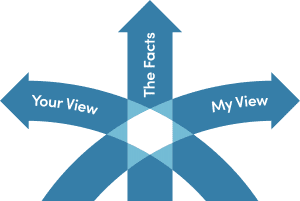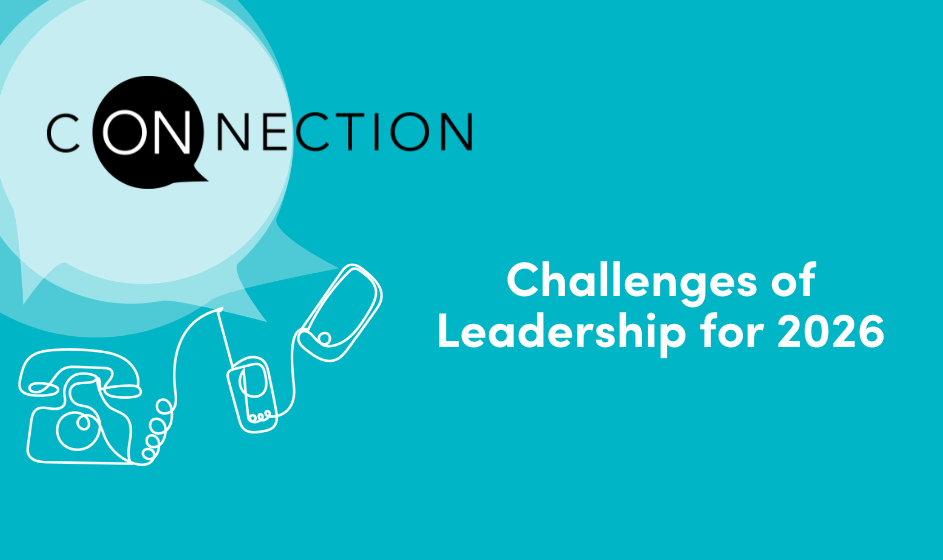In the Financial Times article “The Quiet Art of Being a Good Listener,” Jeff Immelt, General Electric’s chief executive, is quoted as saying that listening is “the single most undervalued and underdeveloped business skill.”
Just as important, however, is the quality of our listening. Too many people think the test for listening is repeating back words we hear. And too often we listen to confirm our biases rather than to learn things that might challenge them and lead to greater organizational health and wealth.
In the same article, author Alicia Clegg shares the story of how Intuit’s founder Scott Cook missed out on four years of major profits by listening with confirmation bias rather than to learn.
Mr. Cook recalls being baffled by a survey that suggested Intuit’s customers were using Quicken, its money-management software, for business accounting even though it was designed for ordinary consumers. The finding seemed absurd, so he ignored it, reasoning that respondents meant they used Quicken to sort out their personal finances during office breaks. But when Intuit delved deeper—some four years later—it transpired that small businesses were indeed buying the product because, unlike professional software, it did not assume knowledge of debit and credit accounting. The discovery led to the development of QuickBooks, now Intuit’s biggest revenue generator. “Such is our tendency to find explanations that conform to our beliefs that we’ll often persist in [error] rather than accept data that confronts [our preconceptions],” he says. Mr. Cook had been guilty of “confirmation bias.”
Over the last thirty years, we have discovered that the antidote to confirmation bias is listening to learn. The challenge is formidable. Most people are curious as a thoughtless reaction. Empathetic leaders, however, are curious as a promise. If you can generate intentional curiosity, you can listen to learn in three fast-moving stages: recognize, respect and discover, and intersect.
1 – Recognize
Learn what people are for (purposes), what people are against (worries), and the facts of the situation (circumstances). Get good at learning these three things and you will connect more quickly and deeply than most people.
The first step is simply to recognize, not to agree or disagree. If you want to make sense of someone’s behavior, first recognize what they are for, against, and the facts commanding their attention, and let everything else (mood, personality, etc.) fade into the unimportant background.
This, of course, takes presence. Relax, breathe, and give yourself fully to hearing their purposes, worries, and circumstances. You will tap into the other person’s deep longing to be understood.
2 – Respect and Discover
What, from the other person’s perspective, is legitimate about their purposes, worries, and circumstances? Are you willing to be surprised by their point of view? Are you willing to discover their contribution? If yes, you will tap into that person’s deep longing to be respected and valued.
Typically, the moment you do something I disagree with, I begin to criticize. I quickly list your shortcomings and ascribe multiple bad motivations like ignorance, ineptitude, revenge, greed, or jealousy. It takes courage and discipline to stop, take a breath, and wonder things like, “How would she explain her behavior? What in her is worthy of my respect?” Can you set aside irrational, rapid opinions about the other, research legitimacy, and be ready for surprise?
This takes putting aside our confirmation biases in order to enhance our capacity for surprising discovery, much like Cook’s discovery of the need for a small-business accounting suite.
3 – Intersect
Reveal mutual interest and common ground. Listening is like radar. When you focus your listening on a question like, “What can I learn?” an extraordinary thing happens: your radar starts to collect information, insights, and lessons that would otherwise go unnoticed. The moment you learn something new, you’ve left the confines of your own viewpoint—and that is essential to empathy. You begin to notice, however small, common ground where your and another’s point of view overlap. We call that spot the intersection.
The intersection has three vectors: my view, your view, and the facts that affect us both.

Finding where our interests intersect is a product of empathy, and it reveals a lot. If I treat your view as legitimate as mine, then I can genuinely ask, “Where do we agree? What do we have to give one another? What possibility lives at the intersection?” Even though many disagreements may remain, a point of intersection can launch collaboration, creating a new foundation of trust that helps to resolve other differences.
This takes a commitment to focusing on where we agree. A major mistake we see in negotiations is starting meetings with a list of disagreements. That triggers defensiveness and makes resolution hard and long. If you want to move quickly, first find common ground, and then address disagreement.
These principles, and much more, were first published in our book The Vitality Imperative, authored by Mickey Connolly, Jim Motroni, and Richard McDonald.



